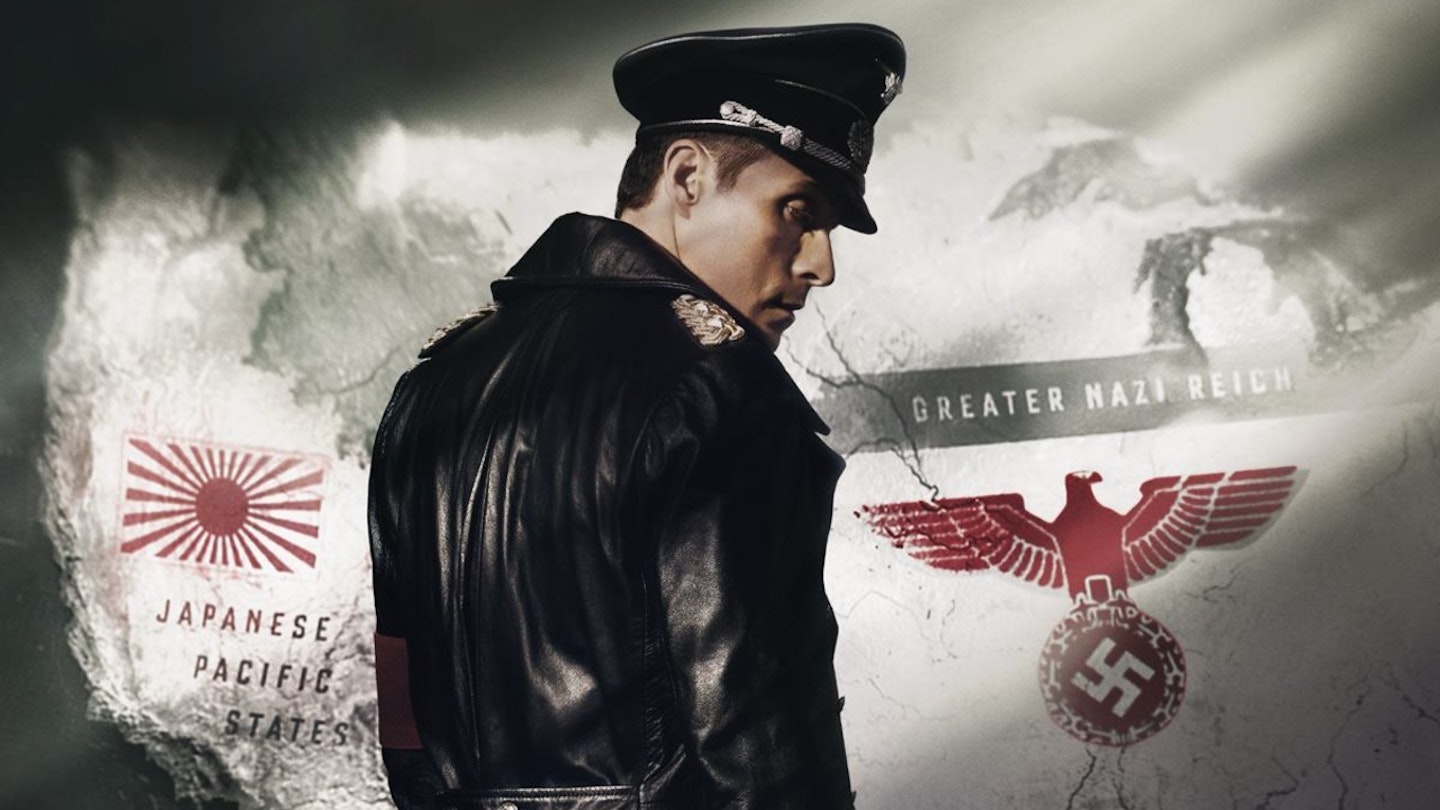Do you remember the battle at Virginia Beach? Or the bomb dropping on Washington DC?
These were the final struggles that decided the outcome of World War II, ultimately allowing Hitler’s Third Reich and Imperial Japan to take control of the United States. This, in turn, resulted in the country being split into three segments: the Japanese-controlled U.S. territory west of the Rocky Mountains, the Germany-controlled Eastern part of the country and the Rocky Mountain States, serving as a sort of neutral zone between the two.
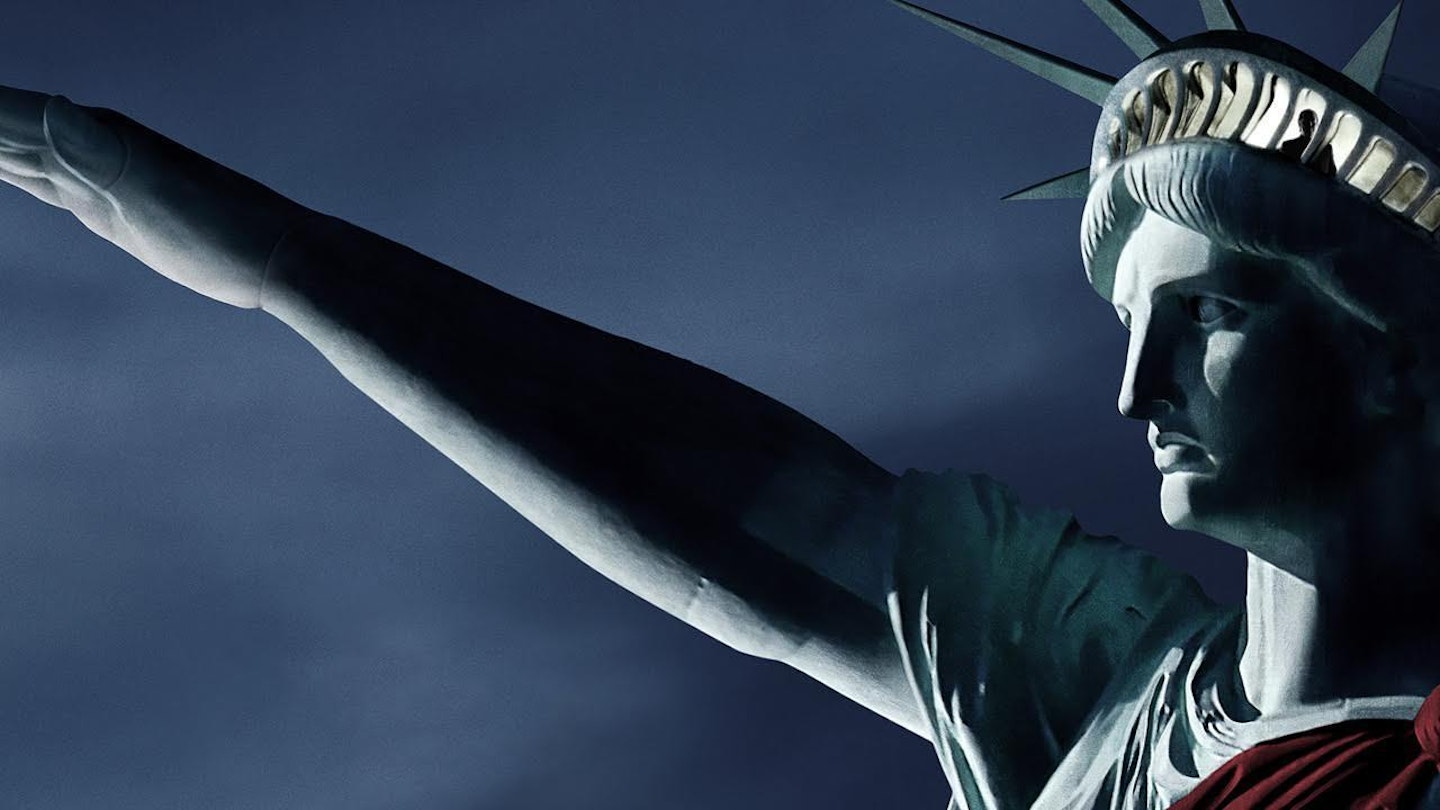
If none of this sounds familiar, don't blame the beleaguered education system. Instead, head over to Amazon to stream seasons one and two (the latter available as of 16 December) and check out the adaptation of Philip K. Dick’s 1962 novel for a chilling look at how history could have unfolded.
The focus in the series early on was on such characters as Juliana Crain (Alexa Davalos), a San Francisco woman who is given a reel of film by her soon-to-be-murdered half-sister that shows an alternate history in which America won the war, and which the Nazis will stop at nothing to retrieve; Joe Blake (Luke Kleintank), who claims he wants to join the Resistance but is actually a Nazi agent; Frank Frink (Rupert Evans), Juliana's boyfriend who is arrested by the Japanese after she has disappeared and finds his life altered forever as a result; and John Smith (Rufus Sewell), an SS Obergruppenfuhrer investigating the Resistance in New York.
The groundwork was laid in season one, and is taken to the next level in year two. What follows is an exploration of ten behind the scenes aspects of the show's second season. Beware of spoilers.
1. Frank Spotnitz who developed and guided the show has left
Dan Percival (executive producer): Frank Spotnitz remains as an editorial consultant for us. Frank’s vision for this show is what brought us all on board, and the team he put together is still the team on the show. Things have only changed insofar as the dynamics of the production. We still worked from the story and script that was originated.
2. The series is a true collaboration between actors and writers
Alexa Davalos (actress, "Juliana Crane"): It’s certainly a unique experience, and one that I’ve never had before. There’s an incredible amount of trust that these producers and the creators of the show have in the cast specifically. That plays a big part in it. There’s an element of freedom in that we’re given that freedom to create. To be advocates for our characters. We spend as much time on script analysis and notes to writers as we do filming the actual show. It’s a lot of work off-screen that goes into this show.
Rufus Sewell (actor, "Obergruppenfuhrer John Smith"): One of the extraordinary things about this job is that we really have been trusted with our input. It wasn't just indulged. We weren't just indulged and put up with, but actually it was very important, and a vital part of the process after a while. The way it worked with Frank Spotnitz, I would have regular calls with him when he was in Paris or London, whatever, every weekend to talk through the scripts. To make suggestions, to ask questions. After a while, it became very much needed by both of us. That was part of the script process, and I wasn't the only person doing it.
It's because they very quickly realized that this wasn't actors trying to gain advantage for themselves, but people who would rather play a small part in an episode if it made that episode a better thing. Because this was our chance to be in something we really cared about, that actually meant something. Even if it's about what it's about, it's about it to a better purpose. I just really wanted to be in something I was really proud of. That gives you a lot of fight. Luckily, everyone feels the same way. There wasn't even one person in there who was, like, "Yeah, but could you give me a closeup here?" Everyone, really smart people, felt the same way.
3. In some ways the Philip K. Dick novel continues to inspire the series
Percival: The universes Philip K. Dick created were so prescient; he was so many years ahead of his time. I don’t think it’s any surprise that now, thirty years after his death, we are still producing his work and finding new ways to interpret it. What’s lovely about Man In The High Castle is it’s set in 1962, seventeen years after the end of the second world war and it honored that. We’ve staged our alternate history in the same period he wrote the book. What is extraordinary to us is how the messages of that time still has resonance and is relevant today. Even more so, because the further we get away from the second world war, the further we get away from what you remember: what the Nazis and the totalitarian Japanese States represented to our parents and grandparents’ generation. It serves as a reminder to all of us how easily and how quickly the ideals of fascism can appeal to us.
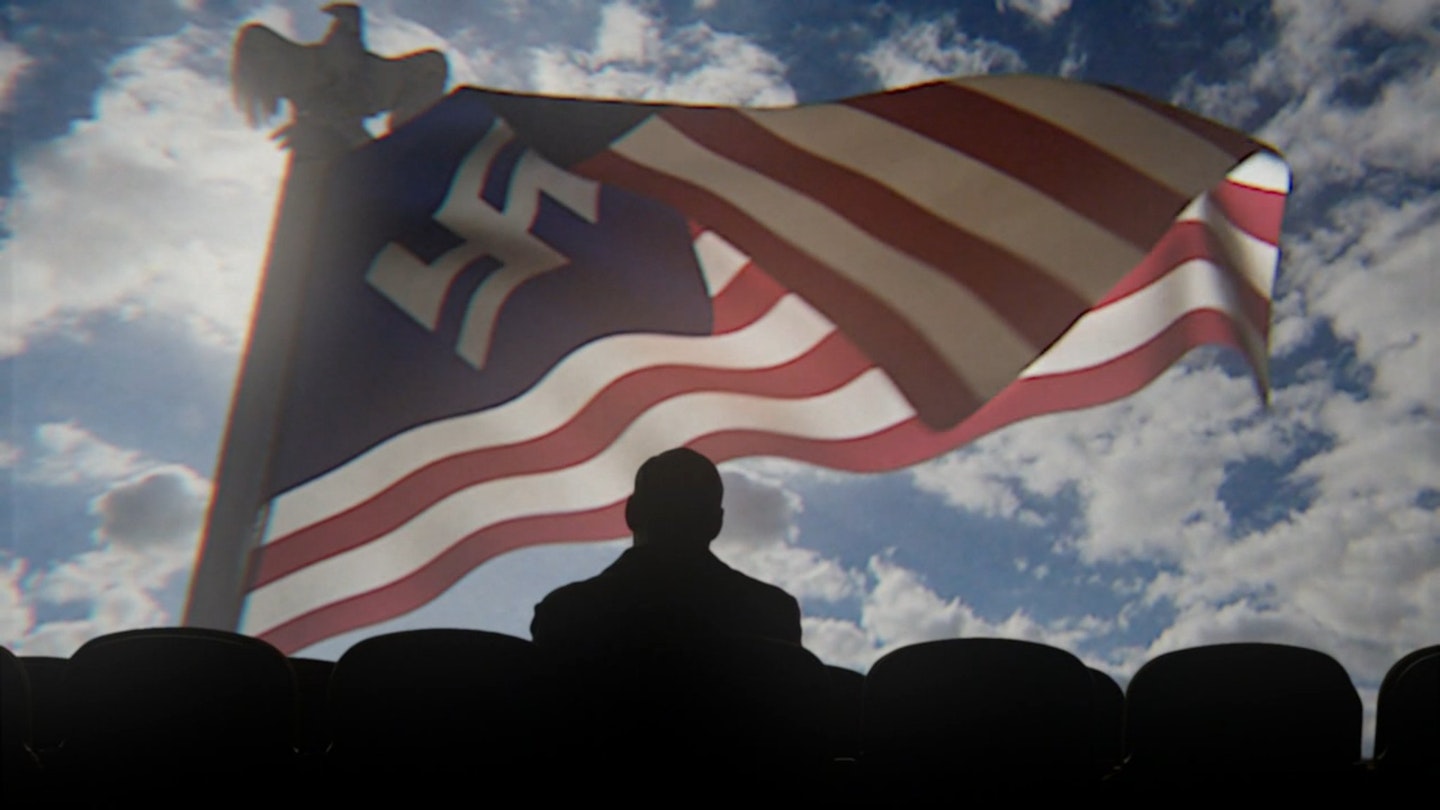
I come from Europe and Europe is much more alert to the potential dangers of this, to our own histories. In America, I think it’s very easy for two or three generations to pass and think, “Oh, that would never have happened.” What Philip K. Dick wanted to remind us is all it takes is the world to turn the other way for the ideas of bigotry and xenophobia, and totalitarianism to take hold again. All it takes is a slip in the economic system, a war, fear of enemies that may or may not be as real as they’d like to imagine. Very quickly people get into power who would have you believe what they claim is true. Even in our democracies we can be vulnerable. Hitler rose in a great democracy. He rose by convincing his nation that he would lead them to greatness out of a time of great strife, of economic strife. They believed him and they followed him and then when he had power, we saw what he did. Let us not forget. That’s what Philip K. Dick wanted us to remember, that actually all of us are capable of sliding in to supporting something that can overwhelm us and overtake us very quickly.
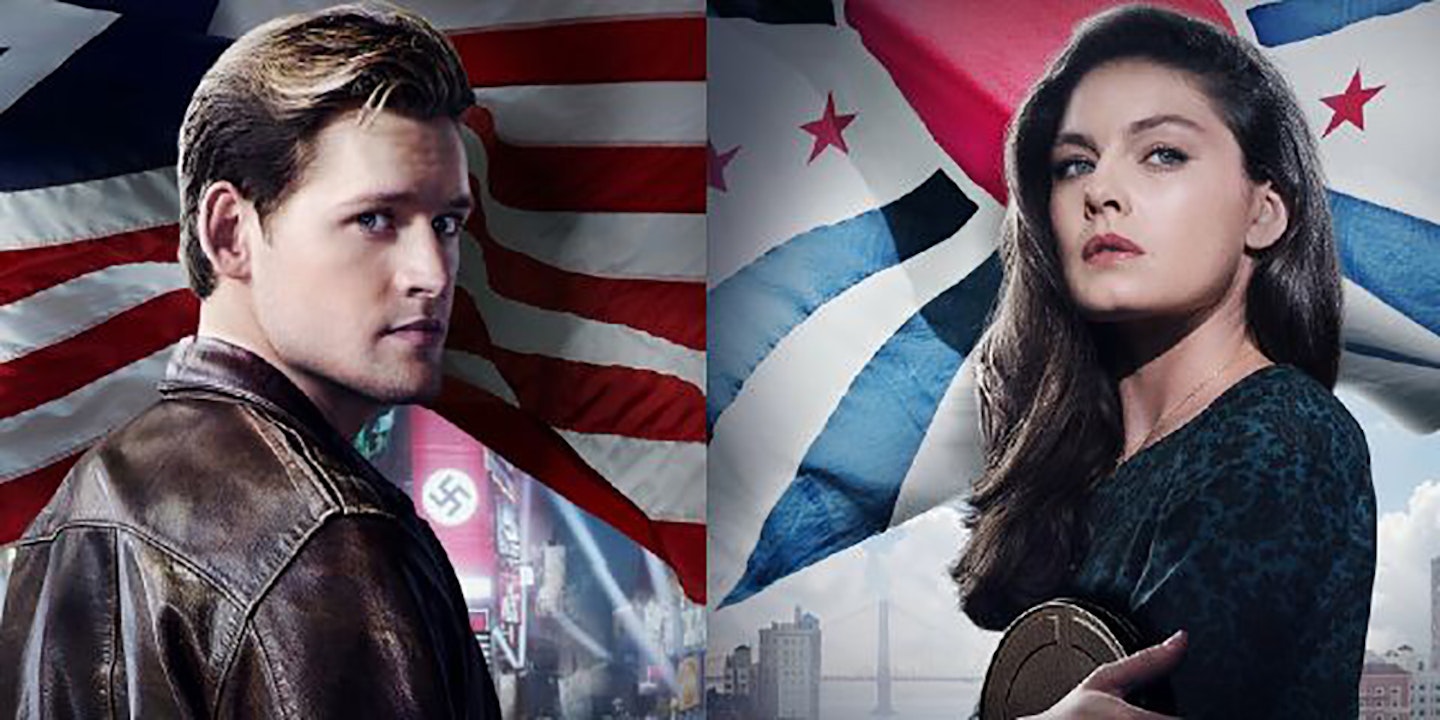
At the same time, this show’s been eleven years in its creation. In a way, the world has caught up with the message of the show rather than the message of the show reflecting what we have today. I’m just very taken with the press, when the press went out last year when it was released, how many people were reading parallels of our world into our show. It was not the intention; we’re just telling the story that Philip K. Dick created. As I said, he was visionary and he writes very universal stories in unique universes.
4. In other ways it's very different from the novel
Davalos: The book has a very unique structure; it’s narrative isn’t particularly formed in a lot of places. The show takes creative license to build that. A lot of our characters aren’t in the book and a lot of them are. In some ways we’ve really just started to scratch the surface of the book. In a lot of ways we’re basing everything on it. It’s an interesting balance that way. I think because they see the show going for a long time, it’s about little, tiny bits and pieces and not doing everything. It forms us and is our guidebook, but the non-linear storytelling of the book just wouldn’t work on television.
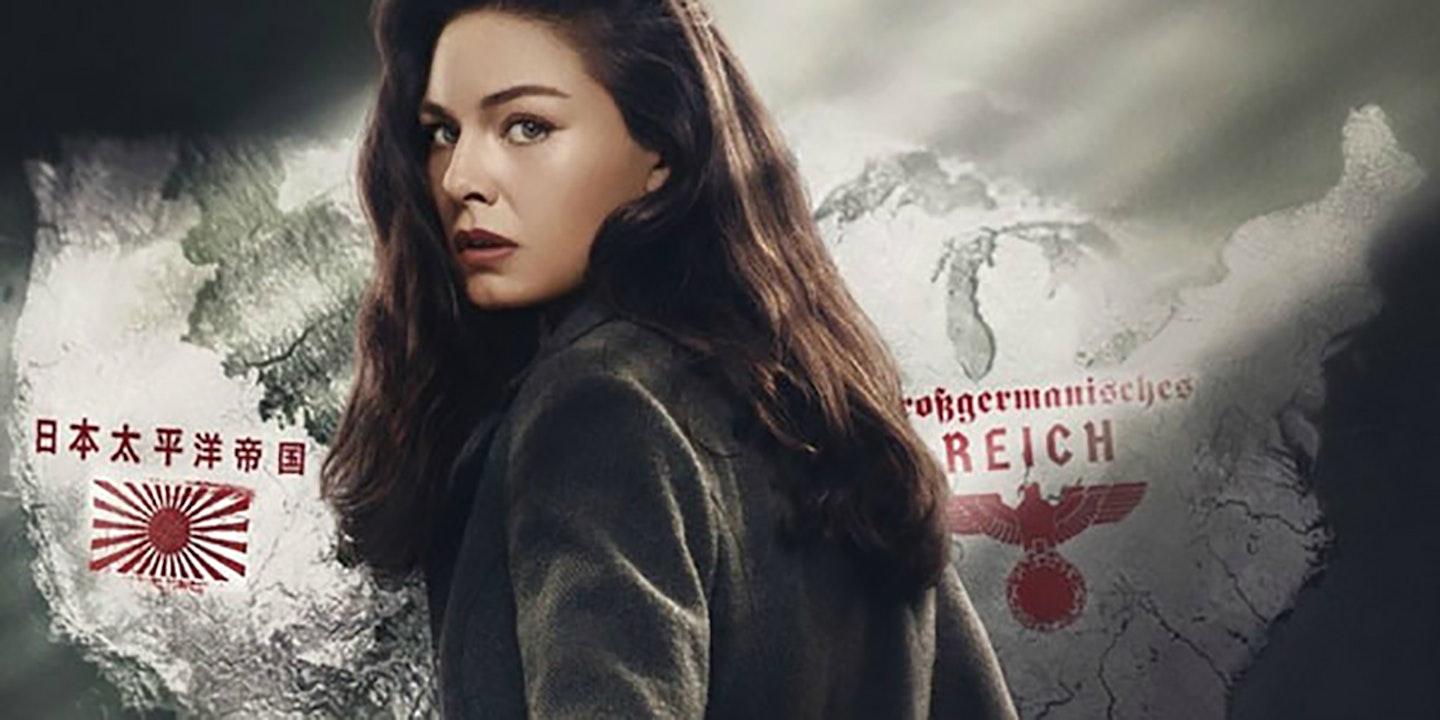
5. Shooting the show was like filming a movie
Luke Kleintank (actor, "Joe Blake"): We get the time to actually film scenes. We get time to work, which is good. It’s a lot different than a network in that respect. The set design is incredible. Having time forms everything. It forms the way you speak, it forms your walk, it forms the way you carry yourself. It’s everything for an actor. I step on set and I feel like, really, fifty-percent of the work is done already. The other side is me having to do this thing called acting. It’s amazing.
6. Music on the show is considered very carefully
Percival: The choice of music on the show is very important, actually, because we touch emotional worlds where the popular culture post-war never happened. What I mean by that is advanced consumer capitalism never happened. What music would have survived and what wouldn’t? What would it be replaced with? Obviously under the Nazis it was heavy-duty oppression of any Jewish and black artists. A lot of the engines that drove the culture of music in the post-war era were gone. Yet so much of the influences surive, and they survived in Cannon City in the Neutral Zone and somewhat in the Pacific States, because that’s where a lot of people fled to due to the fact the Japanese weren’t so strict in a totalitarian aspect as the Nazis were. Every piece of music we feature, we think very carefully about the symbolism of it, like “Mack The Knife” or the potential resistance of it, whether it’s an underground piece of music. We think a lot about creating music as well that is at an embryonic stage of early Rock & Roll. What sort of folk music might be evolving? What sort of musical influences might still be breaking through the cracks of totalitarianism? If you look at Eastern Europe in the ‘60s and the late ‘50s over in communist rule, there were all these underground clubs. You’ll see some of those beginning to happen in the second season.
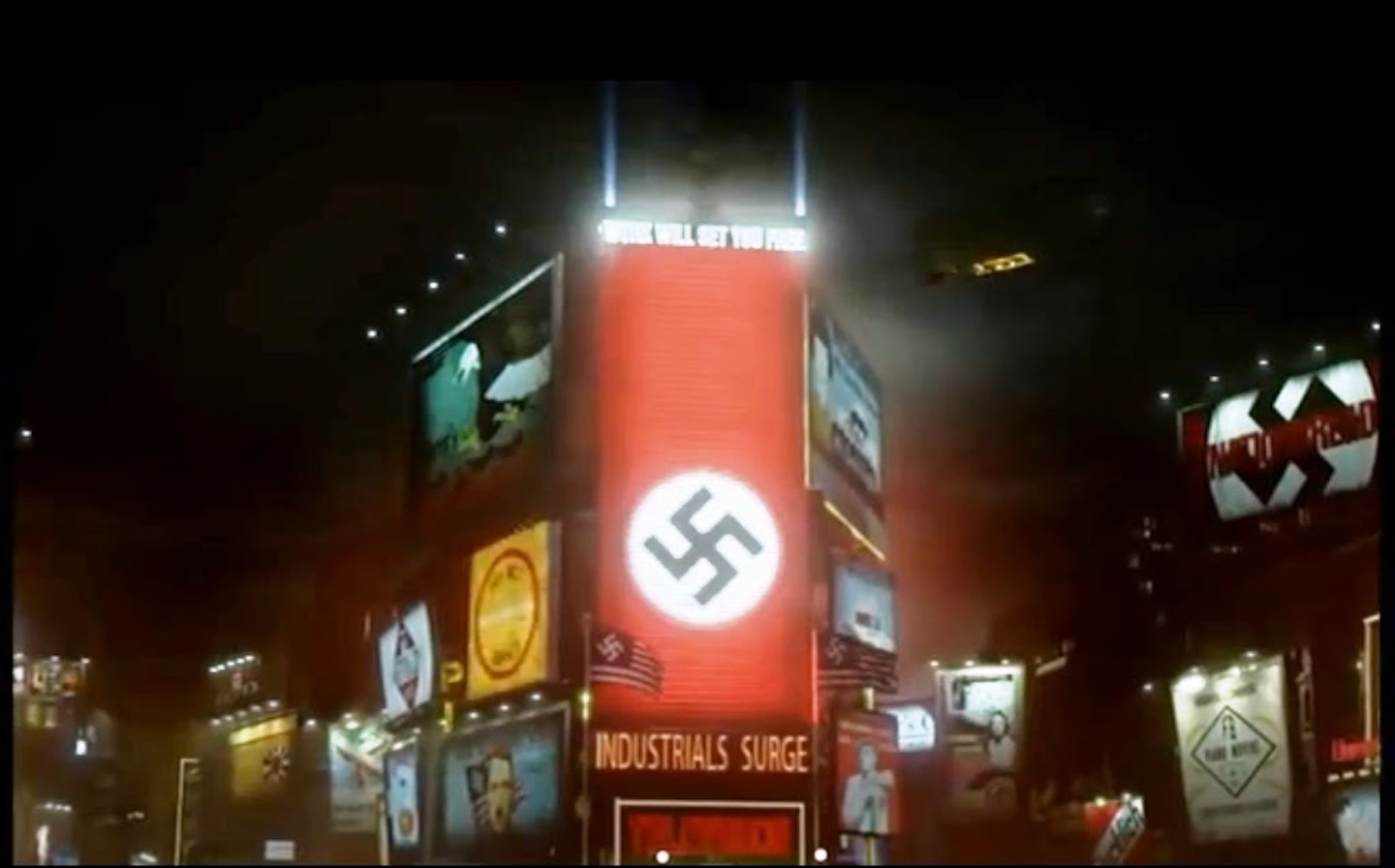
7. Alternate Earths will be a part of season two
Percival: You will experience a ton of realities in season two. It’s very easy to run too fast with these huge ideas. What Philip K. Dick did, where he was so visionary, is he didn’t just take you into an amazing story in an alternate world, he also took you into a new dimensional way of thinking. That’s where sci-fi and alternate history coincide. It’s a way of looking at and reflecting on our world by imagining there are other worlds that could be mirror images of the choices that we make. What he was interested in was that your circumstances in your life, in your work, is determined by the environment you’re in. Your moral choices, your social choices, your work choices, your choices of love are totally tainted by the environment which you live in. You change that environment a little bit and your choices change.
In some worlds, maybe we remain consistent and the same, and we are either good or bad. Maybe some people are completely consistent and some people are completely inconsistent in their environment. In all the characters that you see in Man In The High Castle, some are intrinsically noble to their character and to the core all the way through. When you start to make them in a different reality, they’re going to change. This is an area that we really wanted to explore in season two. It also feeds into the principal world that we’ve introduced our audience to. We stay and remain within that world, but as you saw at the end of episode ten, Tagomi moves over to an alternate world.
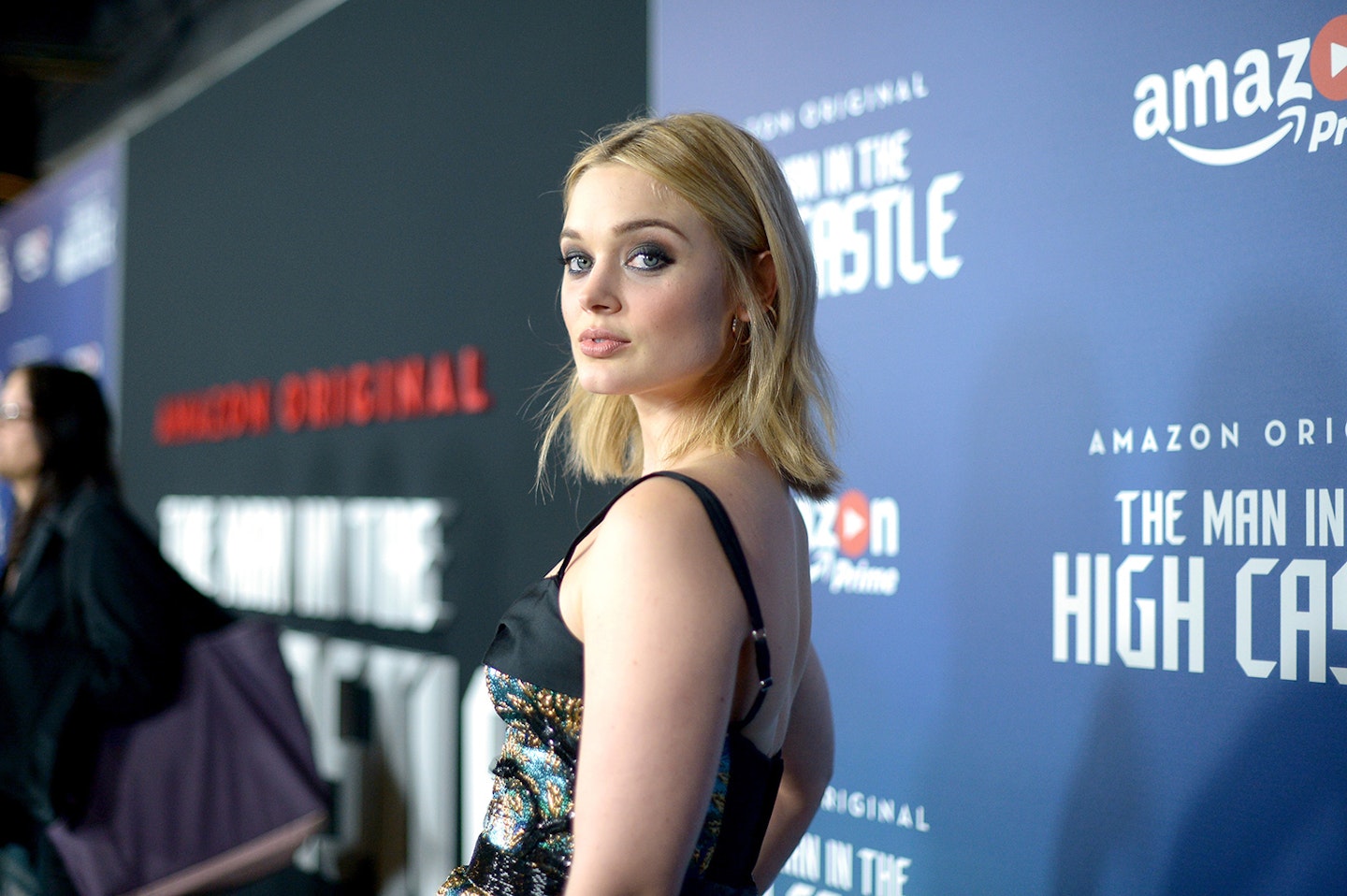
8. New character Nicole Becker is introduced
Bella Heathcoate (actress, “Nicole Becker”): She’s very privileged and very wealthy, and that allows her an independence that she wouldn’t have been able to have in this world had that not been the case. She loves to party, she loves to flirt and she really likes Joe Blake [Luke Kleintank]. She’s part of this new generation of Nazis, who are like the offspring of the perpetrators of these crimes. But she and her friends are not into any of these ideologies. We’re not hippies, but we’re really into the environment and nature. We’re not like these evil Nazi types, but at the same time Joe grew up in a different world and I think he just fascinates her, because he’s different. He’s not some totally rich kid like she is, and like she’s surrounded herself with.
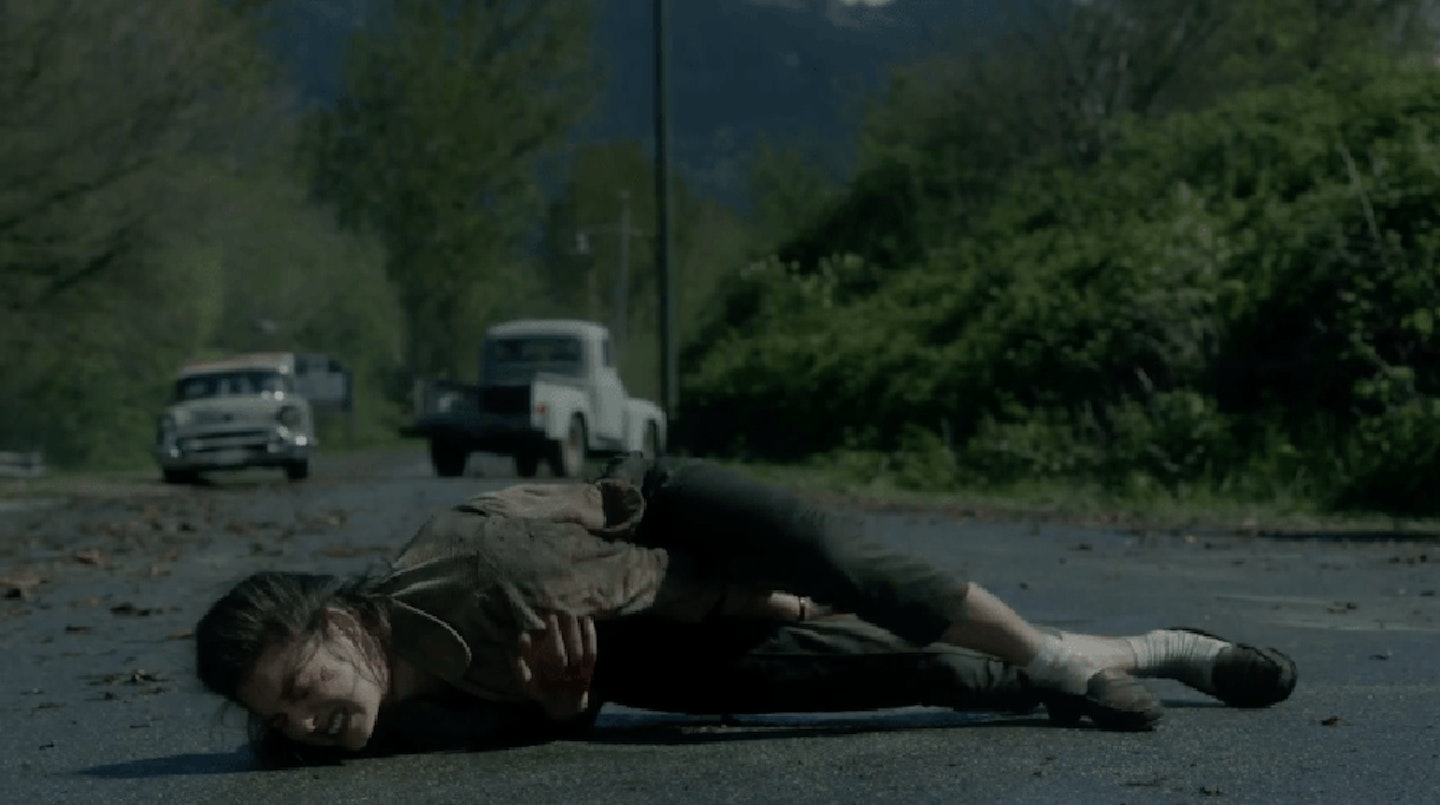
9. The emerging theme of season two
D.J. Qualls (actor, "Ed McCarthy"): This season the theme is the cracking and fissures that are forming. You see the breaking down of what being under Japanese rule on one side and the Reich on the other. You see beneath the veneer of control on one side, and sort of the 1950s utopian veneer on the right. That pushes us all further away from each other. For my character, for example, safety is a big thing. Living under Japanese occupation is awful and it sucks, but if you put your head down, you’ll live. You’ll have enough money to pay your rent and be able to eat. That’s all you could hope for if you grow up in that sort of thing. As my friend starts getting pushed away from that, based on stuff they’ve done to him, I lose my safety. It’s gone. That old life is no longer an option. I have no choice but to go along with him. And as I do I start to resent him. Change makes you angry. We’re seeing that acrsos the board with every single one of our characters this season — change making them angry.
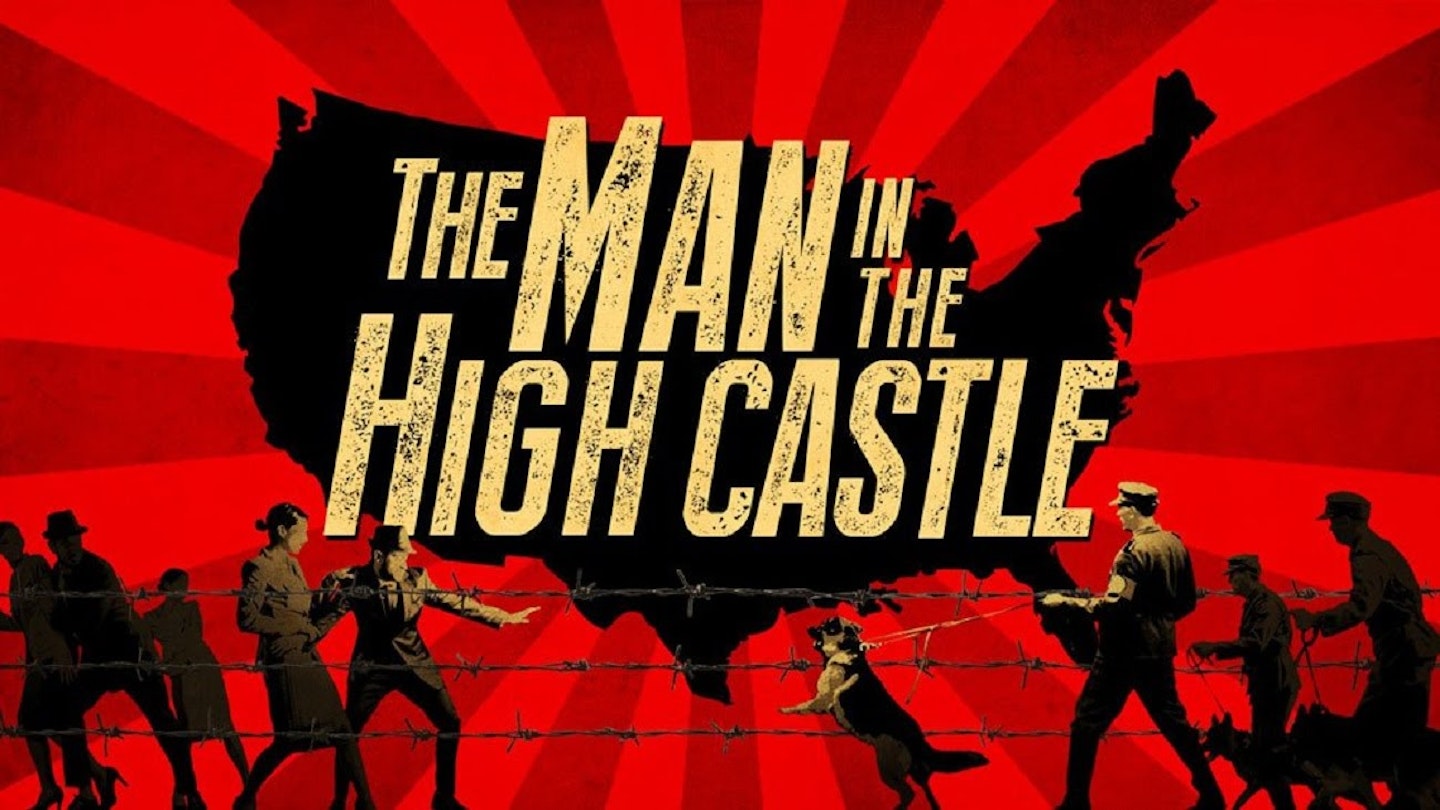
10. Obergruppenfuhrer John Smith is not a monster
Sewell: The key problems for him that are set up at the end of the first season take a long time to deal with and get bigger and bigger through the course of the second season. As he ascends the hierarchy, the ladder, in the reich. He’s already very high, but he ends it having pleased the boss. That continues. He’s given greater responsibility to support and protect the reich as that same thing is on the verge of devouring his son. Those two things clash. But he is not a monster, he’s a human. The only people who do this shit are humans. There are no monsters.
Look at a place like Comic-Con, where half of this business is about taking real evil things and turning them into cartoons. There’s an appetite for it. Particularly at the moment, interestingly enough. Why is it that Nazis are so prone to being rendered Space Nazis, Zombie Nazis, Vampire Nazis, Ghost Nazis? Why do they have to be supernatural? Because the reality is, it was ordinary. If everyone there right now had been in Germany, some of them would have lasted longer than others, but it was just terrifying what happened, because, yes, the people who started the Nazis, the original Nazis, were obviously really mishapen, super fucked up. But then the entire country went with them. That’s crazy. People say, “What would you have done?” “Oh, I’d have left the country. I’d have done this and done that.”
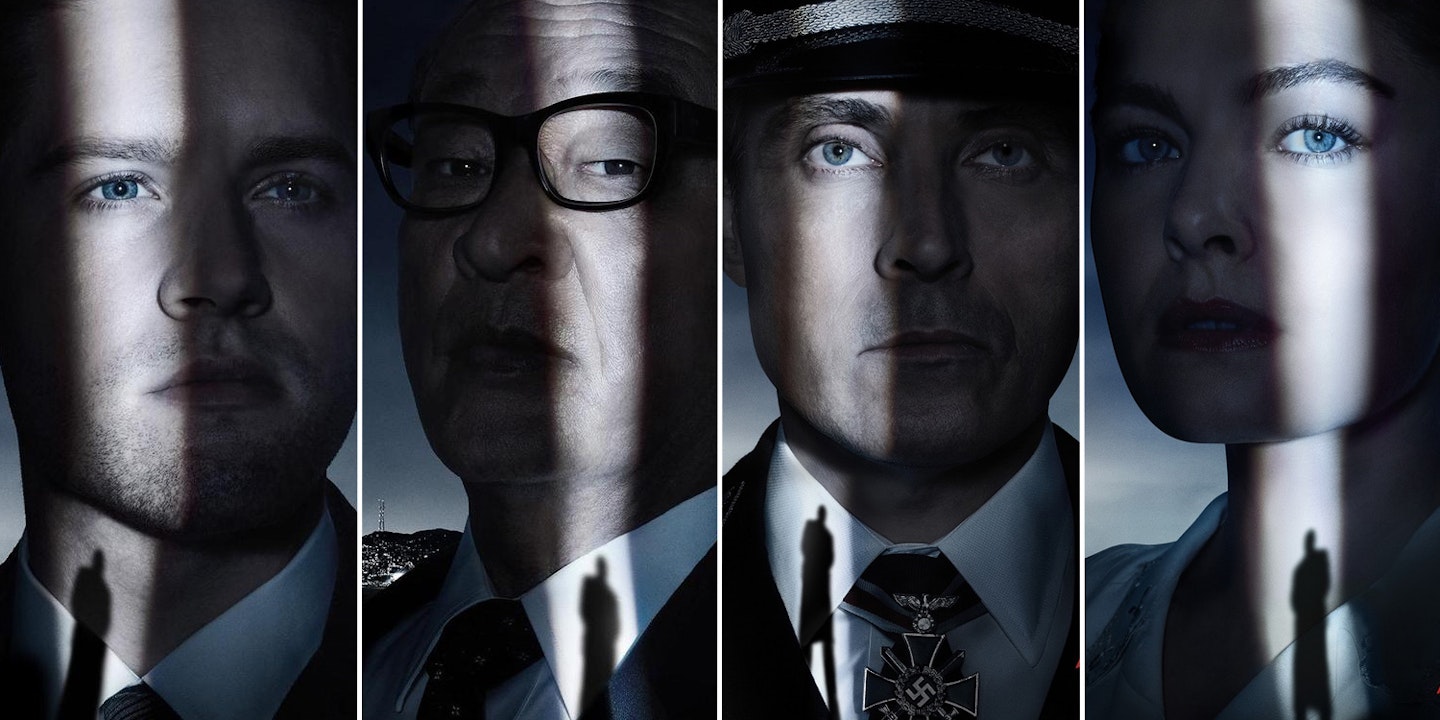
Hitler said something really frightening when talking about dissidents, people who didn’t like him. He said, “I don’t worry about these old people who say they don’t like me. I have their children.” You hear that, and you just think, fuck! “I’ve got their children, I’ve got their wives, I’ve got their parents. Are you going to leave?” You think of it that way. The whole country, people who otherwise weren’t necessarily anti-semetic, they all went along with it. The first thing they did was cut off access to news from the rest of the world. From 1932 onward, everyone in Nazi Germany believed that everyone was out to get them. Everyone. They finally thought they were sticking up for themselves, because everyone in the country had been convinced.
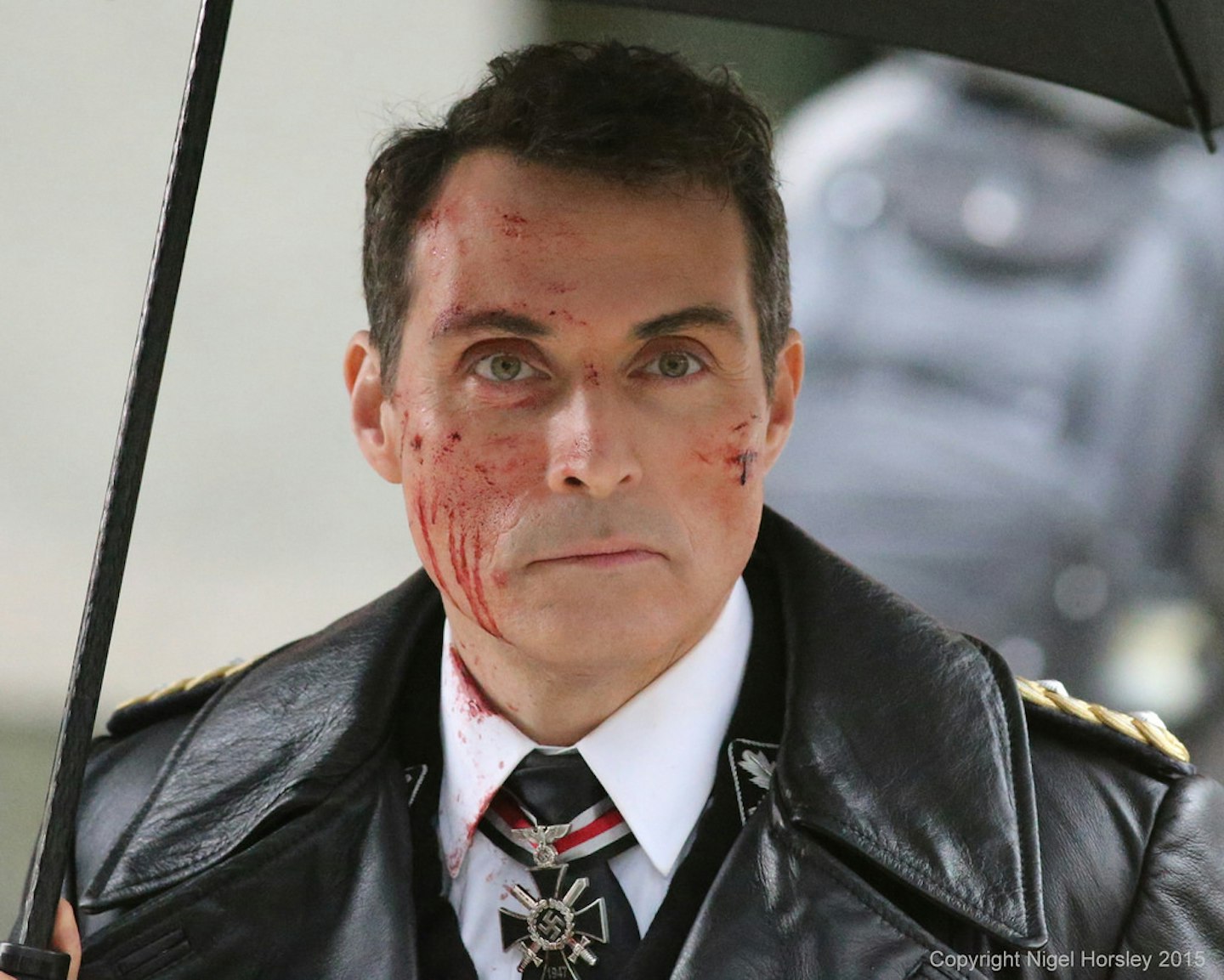
Only at the end of the war did the German people suddenly stop believing the news. They believed it all the way through, because the war hadn't touched them. What Hitler told them seemed true. But then the bombers started coming, and the Russians were coming, and they realized that they'd been sold a lie. That level of mind control, it happens everywhere. Led to Brexit, it can lead to anything.
• Stephen Root is The Man In The High Castle — plus new trailer
